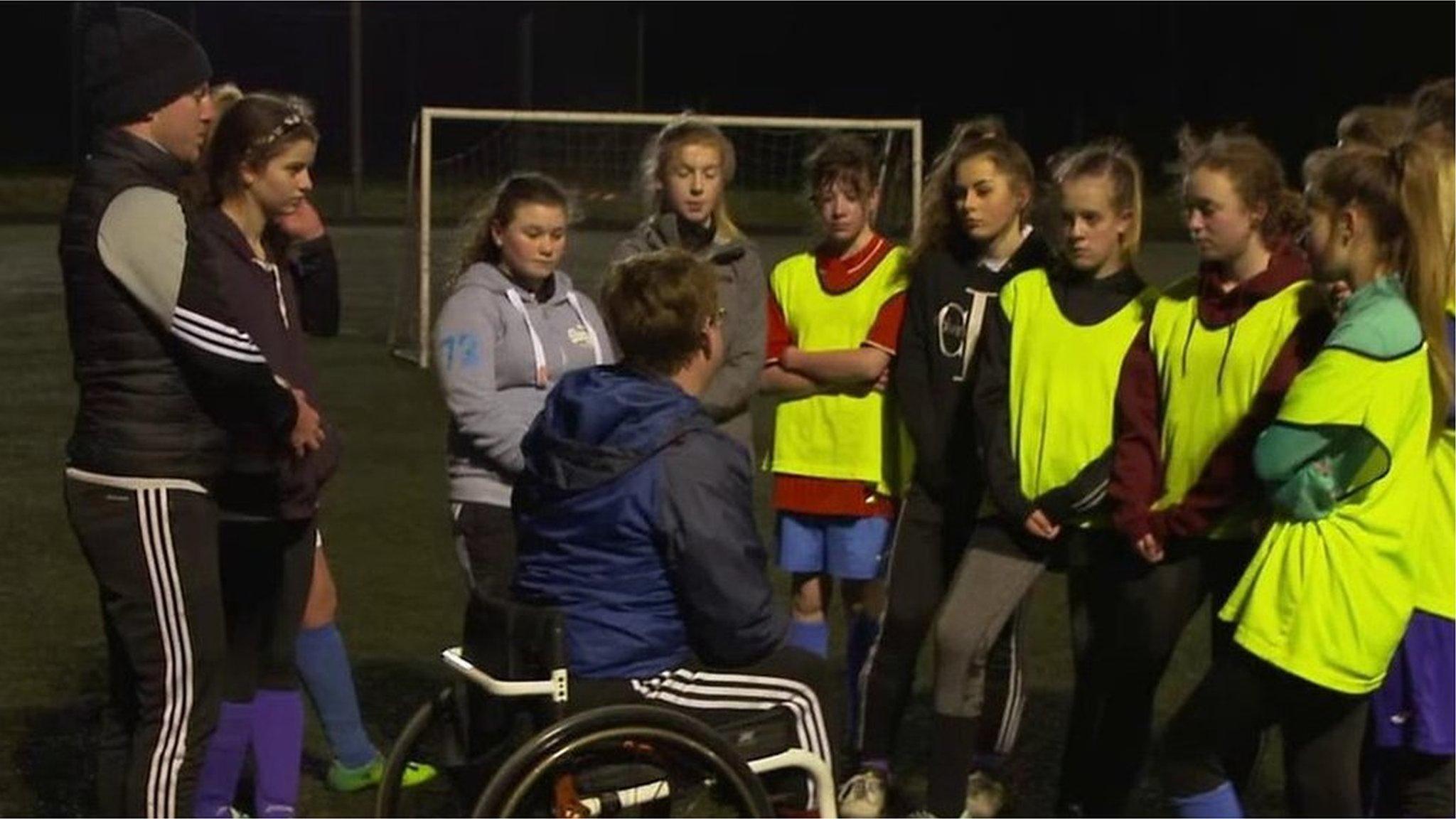International Women's Day 2018: Women in football - working not playing
- Published
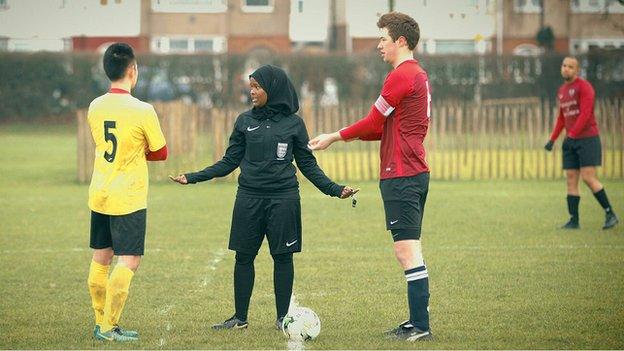
JJ is an award-winning grassroots referee and a football coach
To celebrate International Women's Day 2018, we talk to three women who work in non-playing roles in football about how they started out and the best ways to get involved.
Jawahir Roble - grassroots football referee and coach
"'That team over there hasn't got a referee, can you go and help out?'… they gave me a whistle and cards - I didn't even know there was such a thing as a referee course!"
JJ's introduction to refereeing may have been unorthodox, but she credits her confidence to starting as a volunteer . "If you're scared or haven't got experience, volunteering is there," she advises.
"Everyone wants to be a part of football; it's just working out how to do it."
JJ started refereeing children and parents, before progressing to refereeing men's games.
"Start off from a level you're mostly comfortable at and get someone to support you," recommends JJ, who regularly invites women to watch her and discuss how they can all improve as referees.
"Sometimes people make little comments, but I just think 'I'm doing this, I'm qualified and I love it'."
With aspirations to become a professional referee, JJ believes anything can happen, adding: "You'll last longer if you love what you're doing.
"When people say we need to promote more ladies to referee, those sorts of things encourage me, it makes me proud."
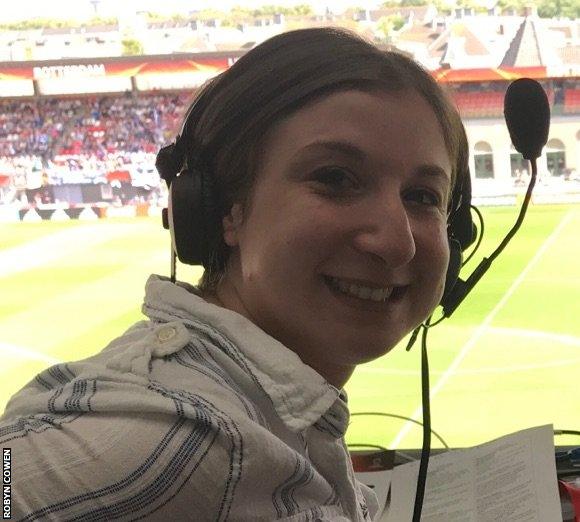
Robyn is a Final Score reporter and regular commentator on Match of the Day
Robyn Cowen - freelance football commentator
"It's not a real job, is it!" The thing that strikes you when talking to Robyn is how grateful she is to do a job she is passionate about. Robyn credits supportive people around her for her rise, having stumbled into sports media via a placement at BBC Oxford.
"If it burns in your belly, if you really want it you can, the possibilities are endless," she says.
Robyn admits that sometimes she counts how many other women are in a press room, and usually it's none, yet she is positive about where women in sport are headed.
"It's all about visibility, or maybe in my field audibility," she adds. The male domination in football is "something you're aware of... but with more experience it's not something that worries you".
According to Robyn, there is a real change happening and it's all about getting out there and seeing what you can do.
"People don't realise the vast amount of things you can do," she adds - for example, social media teams across the leagues are huge, so seek out people who have your best interests at heart and just talk.
"You can't be what you can't see," says Robyn, and the more women who put themselves out there, the more will follow.
The top piece of advice Robyn would give to any women who would love to work in football? "Be persistent but not a pest!"
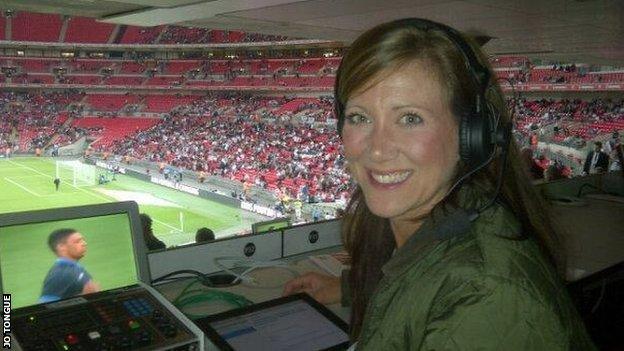
Jo is an editor of BBC Radio 5 live's flagship football programme 606 and the head of her own talent and production company
Jo Tongue - director of Women in Football and CEO of Tongue Tied Media
Jo told her career advisors at school that she was going to be a football reporter.
"I knew what I wanted and there was no doubt in my mind that I wouldn't be a football journalist," she says. But it became clear that "as a woman you have to know 10 times more and shout 10 times louder".
"The men don't know any more than us, they're just more confident," suggests Jo, who worked her way up from runner to programme editor; proof of what hard work can achieve.
Jo worked in a fast-food restaurant to cover rent while volunteering on breakfast radio and her advice for anyone wanting to work in football is "turn up - I said yes to every shift".
She advises: "Be confident in your voice, your opinion, and your knowledge. Know your strengths, and learn your weaknesses." Plus, really want to do it.
Times have changed. Jo was once interviewed for a job because being a woman with coaching badges and a season ticket was a "novelty", yet now she is a woman with a seat at the table who is pushing for more women to be there next to her.
"Diverse voices create better ideas," she adds. "We have a duty as women to bring other women in and you just need to know and love your subject.''
Check back in throughout March as BBC Get Inspired looks at women in grassroots sport every Thursday.
- Published7 June 2019

- Published2 March 2018
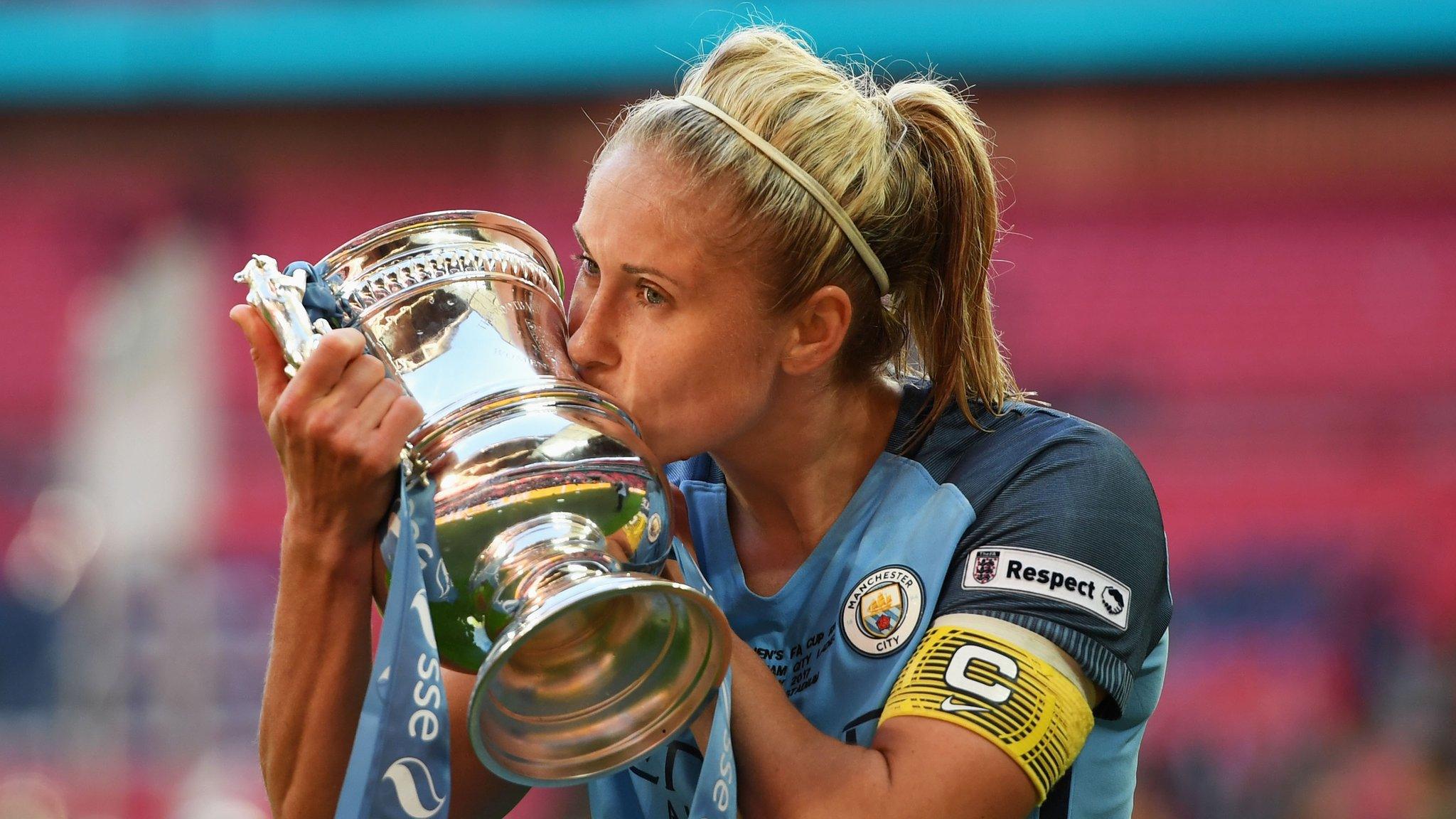
- Published6 June 2018
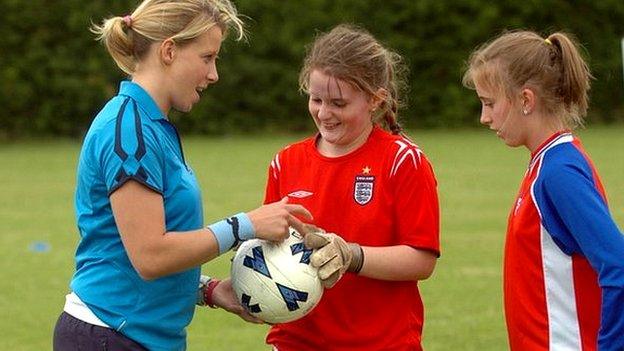
- Published7 March 2018
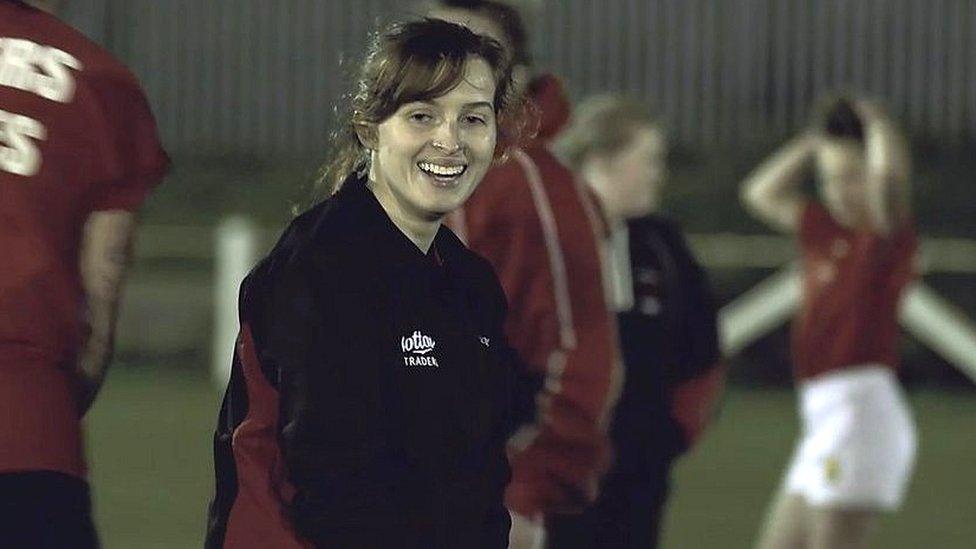
- Published8 February 2018
